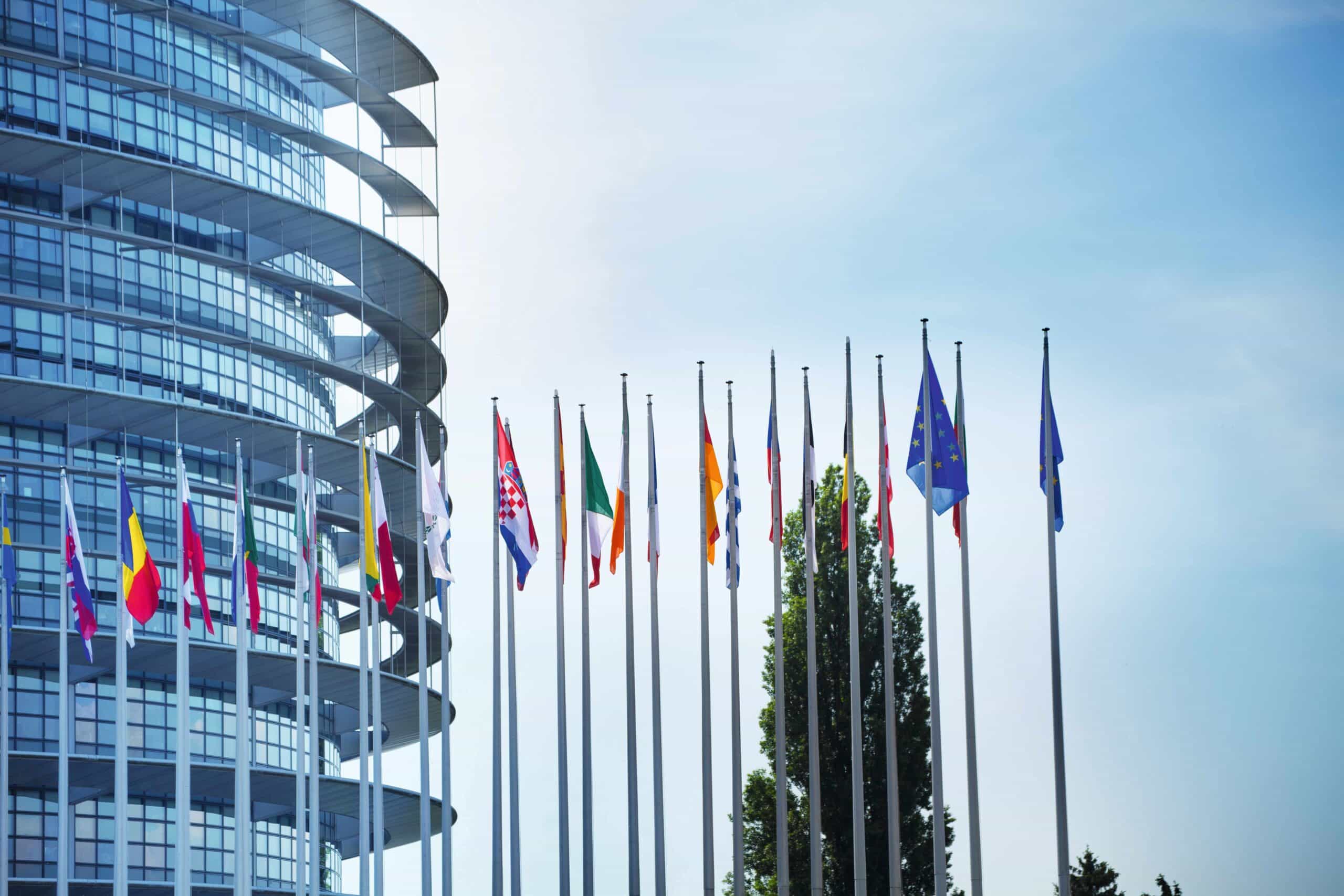Poles at the polls: Europe awaits
Poland’s elections to the European Parliament will take place on June 9, the third in an electoral marathon, following parliamentary elections last fall and local elections in April.
If April’s elections were a mini-plebiscite on the first few months of the post-Law and Justice (PiS) government, a coalition led by Civic Coalition (KO) leader, Donald Tusk, then the jury is still out. PiS won 33.7%, followed by KO’s 31.9%, down from thye 34% last October, though Tusk’s alliance took many of the biggest cities, including Warsaw and Gdańsk, where its candidates Rafał Trzaskowski and Aleksandra Dulkiewicz, respectively, won.
“You would have expected the governing parties to do well,” Aleks Szczerbiak, Professor of politics at the University of Sussex, said. “The fact that they didn’t was quite a significant psychological blow for the ruling coalition.”
PiS leader Jaroslaw Kaczyński said the result was a message to those who had counted his party out. “As Mark Twain once said, the news of my death is somewhat premature,” he said. Tusk’s breakneck reform agenda and style of leadership, his coalition’s abortion equivocations, and splits in the coalition have been aggravated by ongoing farmers’ protests against UKrainian grain imports.
Tusk has stressed security as a key theme in this campaign. “It is either a strong, safe Poland within the bounds of a united Europe, or a country that is alone and embroiled in chaos, while exposed to Russian provocation and diversion,” Tusk wrote on the X platform. “That is what the European elections will determine. We cannot afford a low turnout,” he added.
But while Tusk’s pro-EU position is a plus in some key respects – for example, the EU executive said in February it will unlock a total €137 billion in recovery and cohesion funds for Poland, which had been frozen due to concerns about the rule of law – it also drives many Poles towards PiS, which may in turn explain Tusk’s opposition to a recent EU-wide strategy on immigration.
Ongoing farmers’ protests may contribute to the outcome of June’s European elections. New Left MEP, former prime minister Marek Belka, told Euractiv.pl: “The protests have driven the rural electorate to the polls, which resulted in PiS performing so well in the rural areas.” PiS won 43% of the votes in rural areas, while KO won 20% and the Third Road 16%. In April polls, several other parties trail the two main groups, including the Third Way coalition with a projected 13.5%, the Left with 6.8% and and the far-right Confederation party with 7.5%.
In the 2019 European Parliamentary election, PiS won 45.38% of votes (27 seats), the European Coalition 38.47% (22 seats) and Wiosna (Spring) party 6.06% (3 seats) on a turnout of 45.68%. The Confederation Korwin Braun Liroy Nationalists found itself below the minimum 5% threshold with 4.55%.
Far-right turn
“Attempts to deprive Eurosceptics of oxygen by partially taking over their narrative may end up strengthening the anti-EU message,” Edwin Bendyk, journalist, publicist, president of the Foundation. Stefan Batory told Gazeta Prawna in an interview. “The potential for mobilizing Eurosceptic sentiment was already visible in the farmers’ protests. It can be expected that PiS and Konfederacja will try to build on this. It is clear that Donald Tusk also follows this path a bit, developing a narrative – surprising to many – in which he shows his distance from decisions made within the EU,” he adds. “It is clear that the government has started to approach EU policy more assertively. This doesn’t have to be a bad thing, as long as it doesn’t go hand in hand with demagogic rhetoric and false arguments.”
The European Council on Foreign Relations (ECFR) noted in a report earlier this year – ‘A sharp right turn: A forecast for the 2024 European Parliament elections’ – that these elections “will see a major shift to the right in many countries, with populist radical right parties gaining votes and seats across the EU, and centre-left and green parties losing votes and seats.”
The report shows that the two main political groups in parliament – the European People’s Party (EPP) and the Progressive Alliance of Socialists and Democrats (S&D) – will likely continue to lose seats.
Anti-European populists are likely to top the polls in nine member states (Austria, Belgium, the Czech Republic, France, Hungary, Italy, the Netherlands, Poland, and Slovakia) and come second or third in a further nine countries (Bulgaria, Estonia, Finland, Germany, Latvia, Portugal, Romania, Spain, and Sweden), it states.
Former Polish PiS Prime Minister Mateusz Morawiecki raised the possibility of a merger between his Euroskeptic political grouping and the far right in the European Parliament – the European Conservatives and Reformists group and Leggeri’s far-right Identity & Democracy. Thus, a populist right coalition of Christian democrats, conservatives, and radical right MEPs could emerge with a majority for the first time.
The biggest winner could be the radical right Identity and Democracy (ID) group, which we expect to gain 40 seats and, with almost 100 MEPs, to emerge as the third largest group in the new parliament.
“We also predict that the European Conservatives and Reformists (ECR) group will gain 18 seats. And, if Fidesz in Hungary (which we expect to win 14 seats) decides to join the ECR rather than to sit with the non-attached MEPs, the ECR could overtake RE and ID and become the third largest group,” the report says. “We expect the ECR and ID groups together to account for 25% of MEPs, and have more seats combined than the EPP or the S&D for the first time.”
Policy impact
This is likely to have significant consequences for European-level policies, particularly on environmental issues, where the new majority is likely to oppose ambitious EU action to tackle climate change, most notably in implementing the next phase of the European Green Deal.
However, foreign affairs, such as EU support for Ukraine, the majority in the next European Parliament is likely to back a continuation of the type of financial, logistical, and military aid that Western states have been approving for Kyiv since February 2022.
However, there will be a larger number of MEPs (particularly in ID and among the non-attached MEPs) who are more sympathetic towards Russia, the report goes on. Furthermore, support for Ukraine in the rest of the parliament might also soften as national parties start to respond to the changing opinions of their voters, expressed by their votes in the European Parliament elections.
Given the Euroscepticism of the ECR and ID, and some national parties in the EPP, we could therefore see majorities in the next parliament in support of more economic, fiscal, and regulatory freedom for member states, the report notes.
On civil liberties and justice and home affairs, this could have major implications for EU migration and asylum policies, where there is likely to be a majority in the European Parliament that supports very restrictive immigration policies and will seek to push the commission to reform the EU’s asylum policy framework to allow more discretion for member states and to limit any sharing of refugee allocations.
This could also have implications for the EU’s efforts to enforce the rule of law. In the current parliament there has been a narrow majority in favor of the EU imposing sanctions (withholding budget payments) on member states in which the rule of law is backsliding – in particular in Hungary and Poland. But after June 2024 it is likely to be harder for the centrist and centre-left MEPs to hold the line against the continued erosion of democracy, rule of law, and civil liberties.







